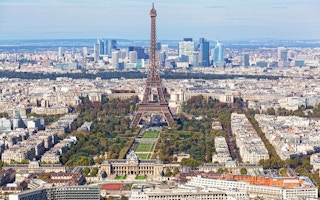In less than a week, politicians and business leaders from more than 190 countries will meet in Paris to hash out an agreement that will kick off the global process to tackle climate change.
To continue reading, subscribe to Eco‑Business.
There's something for everyone. We offer a range of subscription plans.
- Access our stories and receive our Insights Weekly newsletter with the free EB Member plan.
- Unlock unlimited access to our content and archive with EB Circle.
- Publish your content with EB Premium.
With the objective of achieving a universal treaty, the United Nations Climate Change Conference will be held from November 30 to December 11. It is the 21st Conference of the Parties, known as COP21 to the United Nations Framework Convention on Climate Change (UNFCCC), the UN body that is responsible for climate and based in Bonn, Germany.
The main, and most critical, issue on the agenda is how we can cut carbon emissions that cause global warming, which is responsible for more severe droughts, floods and storms as well rising sea levels that will see coastal cities submerged if not addressed.
For countries that are already experiencing these adverse effects, the UN agreement will also seek to help them cope with the impact through collaborative measures.
In preparing for Paris, more than 170 countries have submitted national climate targets covering more than 90 per cent of global emissions.
An agreement in Paris will not be the end point; its significance is that for the first time, all countries will be working together under an agreed, transparent legal framework, to begin to limit global temperature rise to less than 2 degrees Celsius – the internationally agreed goal.
About 45,000 people are expected to participate at the meeting at the Paris-Le Bourget site at some point during the conference. They include US President Barack Obama, his Chinese counterpart Xi Jinping and Russian President Vladimir Putin as well as official delegates representing countries, observers, civil society and journalists.
More than 20,000 people will be officially accredited and will have access to the conference itself, while those not accredited will be able to take part in debates, attend exhibitions, talks and screenings in the civil society area which will be built very close to the conference centre.
The Eco-Business editorial team will be covering the conference this year in Paris and we would like to hear from you, our readers.
What are your hopes and expectations for the conference? What would you like us to focus on? What stories would you most like to read? Get in touch with us via Facebook, Twitter, and follow us on Instagram. You can also email us news@eco-business.com. We want to hear from you.















